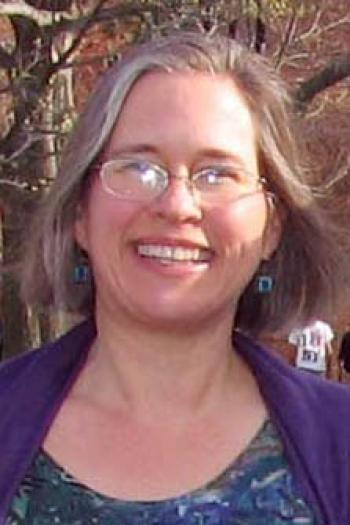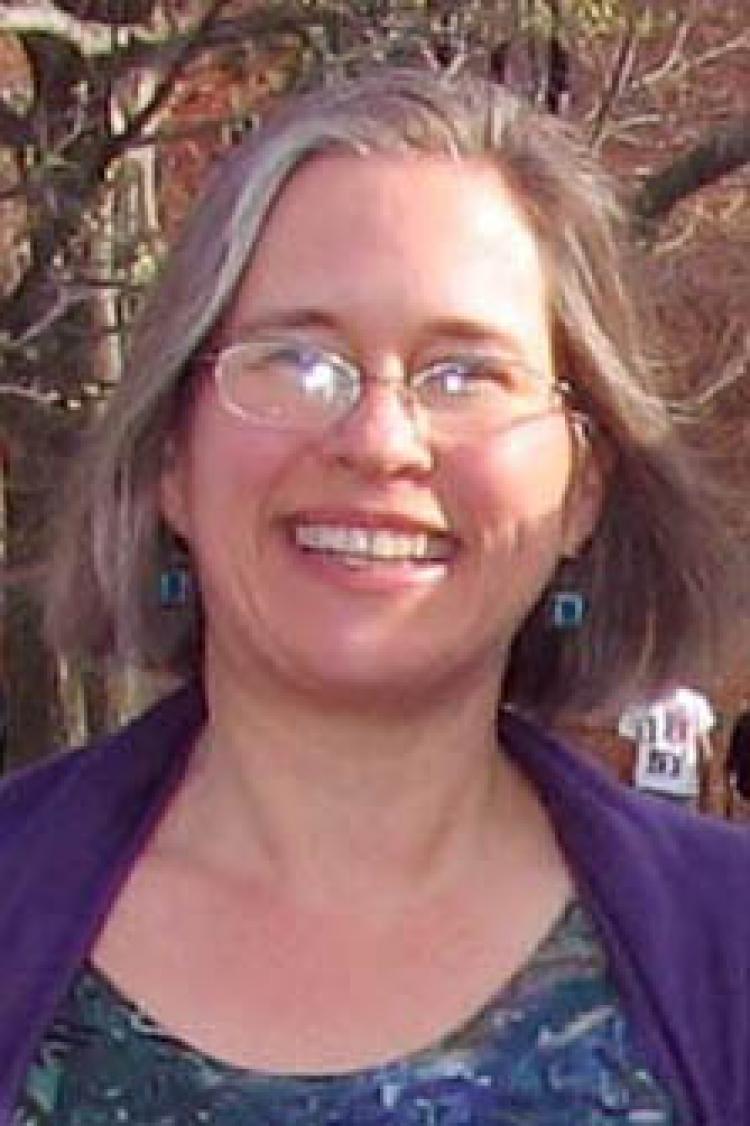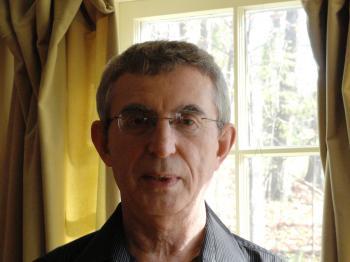A Green Thought in a Green Shade
Every morning since spring, I have watched Tina Nilsen-Hodges walk past our windows.

Tina Nilsen-Hodges is principal of New Roots Charter School, a public school committed to sustainability, education, and social justice. James Bosjolie
|Updated:





